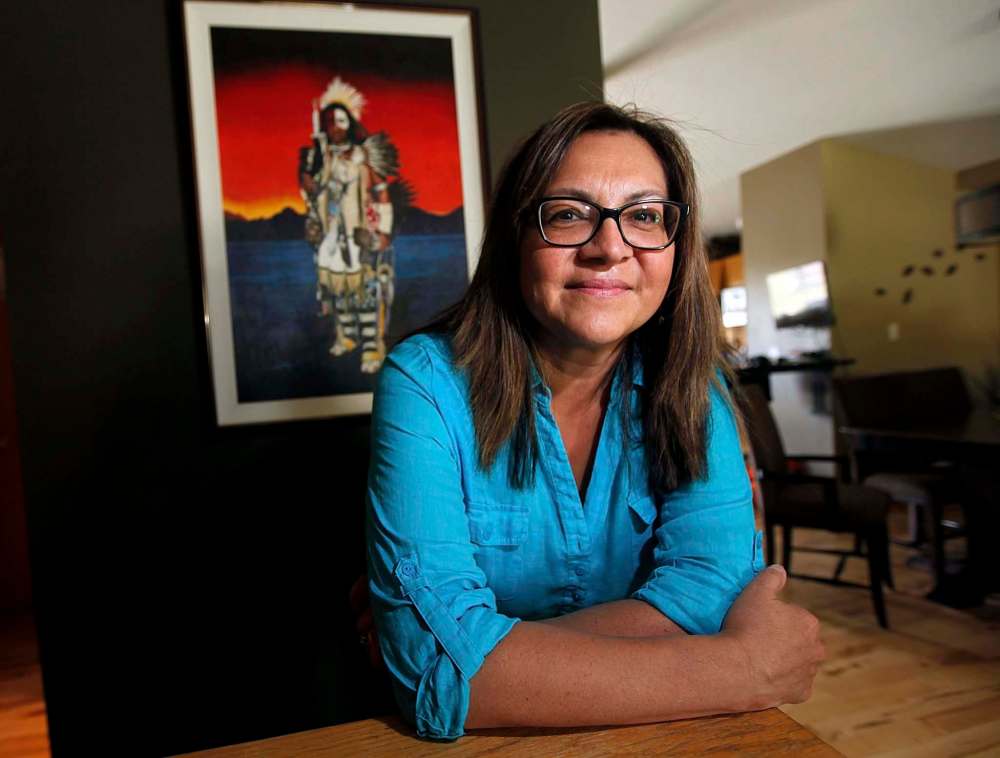Treaty commissioner for Manitoba named after year-long vacancy
Advertisement
Read this article for free:
or
Already have an account? Log in here »
To continue reading, please subscribe:
Monthly Digital Subscription
$19 $0 for the first 4 weeks*
- Enjoy unlimited reading on winnipegfreepress.com
- Read the E-Edition, our digital replica newspaper
- Access News Break, our award-winning app
- Play interactive puzzles
*No charge for 4 weeks then billed as $19 every four weeks (new subscribers and qualified returning subscribers only). Cancel anytime.
Read unlimited articles for free today:
or
Already have an account? Log in here »
Hey there, time traveller!
This article was published 23/05/2017 (2527 days ago), so information in it may no longer be current.
The Trudeau government has finally named a new treaty commissioner for Manitoba after nearly a year of seaching for the right candidate.
Loretta Ross, a lawyer who hails from Hollow Water First Nation, 200 kilometres north of Winnipeg, will take office Monday after a protracted, non-partisan vetting process that began last May. Ross will be responsible for helping improve treaty relationships.
“It’s a pretty big discussion,” Ross said Wednesday at home in Winnipeg, where she’s been working for the last year wrapping up the last of her legal cases, many to do with residential school survivors, in preparation for this appointment.

“It’s taking a look at the treaties and saying between governments, between nations, what does that relationship look like now, and how do we go forward?”
How much of these conversations Ross will be able to tackle during her one-year term is unclear. She admits to being hampered by the short tenure but is determined to push forward nonetheless.
“I think people would like to see something a little more concrete,” Ross said. “You can’t do as much as you want in a year, but you can start the process, you can plan.”
The Assembly of Manitoba Chiefs (AMC) and the federal government created the role in 2005, a joint attempt to create a neutral office that would better relationships governed by treaties that date back centuries.
It can be a polarizing topic, Ross said. Indigenous people are on one side pointing to mounting evidence the treaty benefits have been “one-sided,” the government not honouring its promises, she acknolwedged, while non-indigenous people are on the other worrying what more indigenous control will mean for their lives.
“Automatically,” she said, “people get their backs up.”
But Ross has been preparing for those moments when people need to practically be forced to sit and listen with an open mind almost her entire career. A graduate of Queen’s University’s law school, Ross spent a year working in Toronto before coming home to Manitoba, where she did a nine-month stint doing research work for the Aboriginal Justice Implementation Commission.
From there, Ross’s legal practice focused primarily on Child and Family Service law. In 1995, she joined AMC, where she spent a decade mired in indigenous self-government negotiations which invariably entwined with treaties.
Although Ross left AMC in 2005, treaties continue to factor prominently in her legal work. She served for a while as lawyer for Fox Cree Nation, her role eventually evolving into an executive director role to help mediate in the First Nation’s interactions with Manitoba Hydro. She later served as legal counsel for Hollow Water as well.
With Ross’s legal background and expansive treaty knowledge, Grand Chief Derek Nepinak said AMC is “happy we have the right person in the position.”
AMC recommended Ross to the federal government last fall, at which point the job had been vacant for six months. The Liberal government let former treaty commissioner James Wilson’s appointment — made by the former Conservative government and reappointed in 2014 without AMC’s approval — lapse in 2016. Ross’s appointment was one of many slowed by new federal processes to make sure such appointments were non-partisan.
Although Nepinak had hoped for a speedier decision, he said he’s looking forward to seeing Ross tackle the job.
“We think she’ll be able to handle the difficult questions,” he said, particularly legal ones. Nepinak’s hope is Ross will be able to make the treaty commissioner role a little more substantial.
While treaty-based education is an important aspect of the job, he said he’s “looking for a more substantive role… for (Ross) to actually get involved in some of the ongoing issues around treaties that are both political and legal in nature.”
In a statement, the office of the minister of Indigenous and Northern Affairs Canada said the government “is looking forward to working with her as we rebuild Canada’s relationship with indigenous peoples based on respect, recognition of right and co-operation.”
Ross said discussions between all levels of governments and between nations are going to be key to her appointment.
“Each of the parties needs to have a look at the politics, have a look at the legal aspects of treaties and what they mean,” she said.
From there, she said, “Maybe we could arrive at a point where we can advance the treaty relationship itself.”
jane.gerster@freepress.mb.ca


